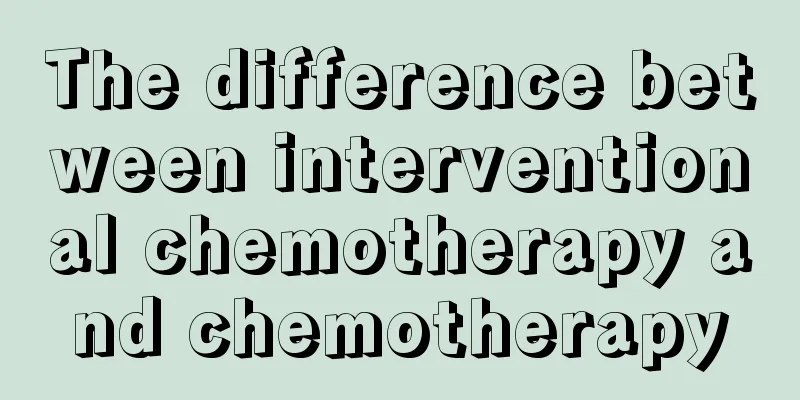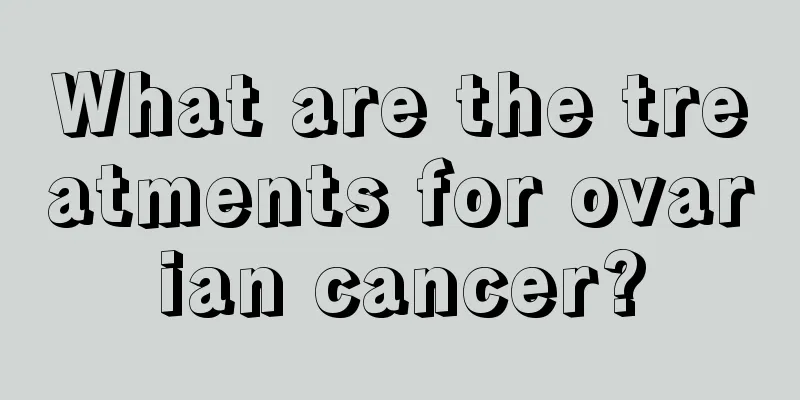The difference between interventional chemotherapy and chemotherapy

|
Chemotherapy is a way to treat diseases. It is mainly a better way to kill cancer cells. Treatment is divided into interventional therapy and systemic therapy. Although both belong to the category of chemotherapy, there are great differences in the treatment methods. Interventional chemotherapy is mainly local chemotherapy, which is to make tiny channels through blood vessels or skin, and then directly apply chemotherapy drugs to the local area, while chemotherapy is systemic treatment. 1. The weapons they use are different: Radiotherapy is called radiotherapy. It is a treatment method developed by an outstanding physicist who can use rays of various energies to deal with tumors in order to inhibit and kill tumor cells. Chemotherapy is an outstanding chemist who is good at using chemical drugs (including endocrine drugs, etc.) to fight against tumors. Chemotherapy drugs are usually injected intravenously, taken orally, or in other forms to enter the body to kill tumors. 2. Their attack ranges are different: radiotherapy and surgery are good at fighting, and their local attack force is greater and stronger. The range of radiotherapy is called the "target area", that is, the area where the radiation is concentrated for treatment. There is not much radiation outside the target area, and normal tissue will not be greatly damaged. Chemotherapy is mainly systemic treatment. After the drugs enter the body, they will be distributed throughout the body. They not only have an effect on solid tumors, but also have a strong killing effect on tiny invisible metastases. Of course, there are also chemotherapy methods that focus on local treatment, such as interventional chemotherapy, local perfusion chemotherapy, etc. 3. They attack different targets: Radiotherapy is mainly aimed at the radical treatment of relatively localized solid tumors, such as head and neck tumors, lung cancer, esophageal cancer, skin cancer, lymphoma, etc.; preoperative and postoperative adjuvant treatment of some tumors such as breast cancer, cervical cancer, and gastrointestinal tumors; and palliative radiotherapy for some tumors such as bone and brain metastases, etc., but it has limited effect on systemic tumors such as leukemia. Currently, about 70% of cancer patients need to receive radiotherapy at different stages of the disease, which shows the importance of radiotherapy in cancer treatment. Chemotherapy is aimed at tumors that are more sensitive to chemotherapy drugs, such as lymphoma, leukemia and other blood system diseases, breast cancer, gastrointestinal tumors, lung cancer, reproductive system tumors, etc. The effectiveness of chemotherapy depends on the type and condition of the tumor. Some can be cured, while more often it can inhibit tumor growth and spread. At this point, some people may ask, since they are applied in different fields, why chemotherapy kills people faster? This depends on the fourth point: toxic side effects. In general, radiotherapy is mainly a local reaction, which is related to the radiotherapy field. For example, radiotherapy to the head and neck can cause dry mouth, sore throat, neck fibrosis, decreased taste function, etc. Chest radiotherapy may cause radiation-induced lung changes, radiation-induced esophagitis, etc. With the advancement of radiotherapy technology, radiation brain damage and paraplegia, which were common in the past, occur less frequently. Chemotherapy mainly causes systemic reactions, generally bone marrow suppression and gastrointestinal reactions, such as low blood count, nausea, vomiting, and phlebitis, etc. As long as the treatment is proper (such as combining with the Chinese medicine ginsenoside R G3 to enhance detoxification), severe liver and kidney damage, heart damage, and severe reactions such as "vomiting bile" are not very common clinically. With the development of technology, the toxic side effects of radiotherapy and chemotherapy are gradually being alleviated. This shows that the side effects of chemotherapy are more serious than those of radiotherapy. Therefore, it is recommended to cooperate with Chinese medicine treatment during chemotherapy, such as Ganoderma lucidum, Astragalus, Ginsenoside R G3, etc. Studies have found that among many anti-tumor Chinese medicines, ginsenoside RG3 inhibits the formation of new blood vessels in tumors; prevents the implantation of detached cancer cells on the blood vessel wall; inhibits the infiltration of tumor cells into the basement membrane of the blood vessel wall, and has significant anti-infiltration and anti-metastasis effects. Clinical experiments have confirmed that ginsenoside RG3 can effectively inhibit the growth of lung cancer, liver cancer, stomach cancer, intestinal cancer, and breast cancer, significantly improve clinical symptoms, improve quality of life, prevent and treat cancer, improve cardiovascular function, resist platelet aggregation, protect brain nerve cells, and enhance the body's immunity. Having said that, although there are such big differences between radiotherapy and chemotherapy, in fact, radiotherapy, chemotherapy and surgery are used in conjunction with each other in the treatment of many tumors. Nowadays, tumor treatment emphasizes comprehensive treatment, and breast cancer and lung cancer are the most common cases of comprehensive treatment. As for when to treat tumors with surgery, radiotherapy, chemotherapy, or palliative care, it depends on the clinical physician. However, it is recommended that Chinese medicine be used as an auxiliary treatment to enhance detoxification and improve immunity. |
<<: What are the endocrine organs?
Recommend
What causes split personality disorder
In the TV series "Seven", there is a ma...
Will the Sichuan pepper shell soften on its own?
Sichuan peppercorns are a common thing in daily l...
Side effects of carboplatin chemotherapy
Carboplatin chemotherapy is one of the more commo...
Benefits of latex quilt
Latex products have some excellent effects on our...
What are acute gastritis
Common symptoms of gastritis include vomiting, na...
What is the effect of applying ginger to the navel
Applying ginger to the navel has certain health c...
Diet for breast cancer patients
Breast cancer patients should eat more foods rich...
What to do if the heels of high heels rub your feet
High heels are the favorite of many female friend...
What to do if your skin is flooded
Skin flooding may be caused by skin inflammation,...
Can herpes be cleaned with alcohol?
Herpes is a serious skin disease. Once it occurs,...
How to clean a stainless steel stove
The stove is used by people when cooking every da...
What is the reason for a thin body and a fat face
Many people are thin physically, but are obviousl...
Giving birth too early is more likely to cause cervical cancer? Three things to do to prevent it
Cervical cancer is a common gynecological cancer ...
Dark skin on elbow joint
The elbow joint is a very important joint. The fl...
How to care for a lymphoma patient at home
Lymphoma is a serious disease. To save the life o...









